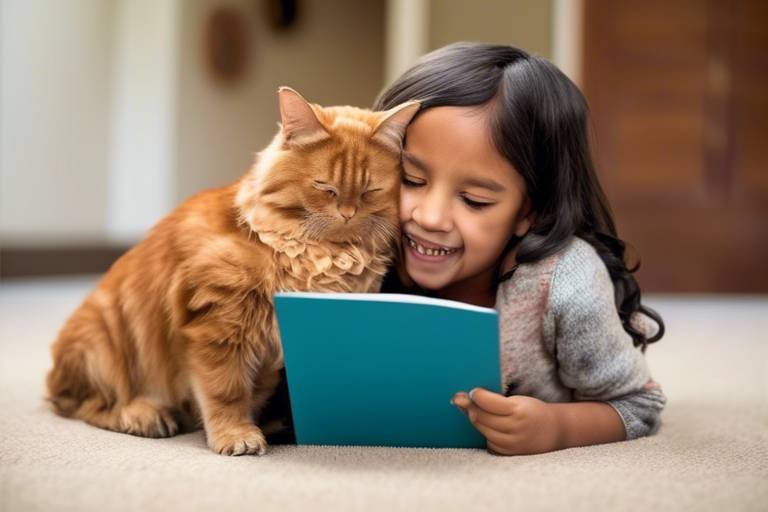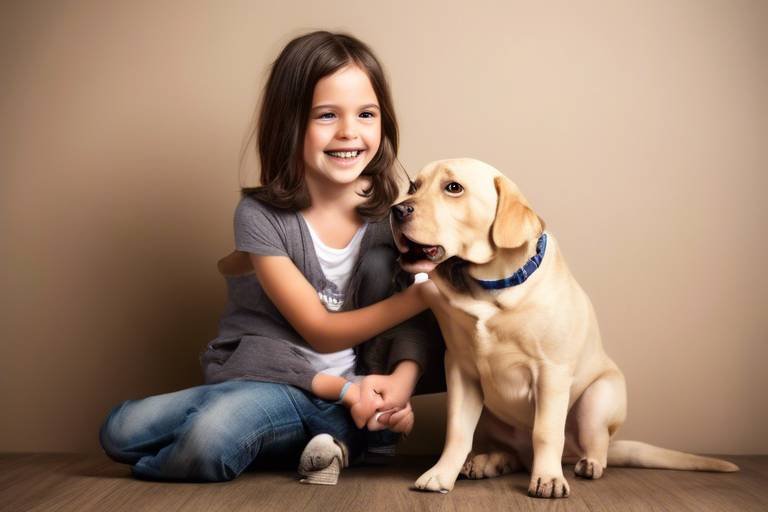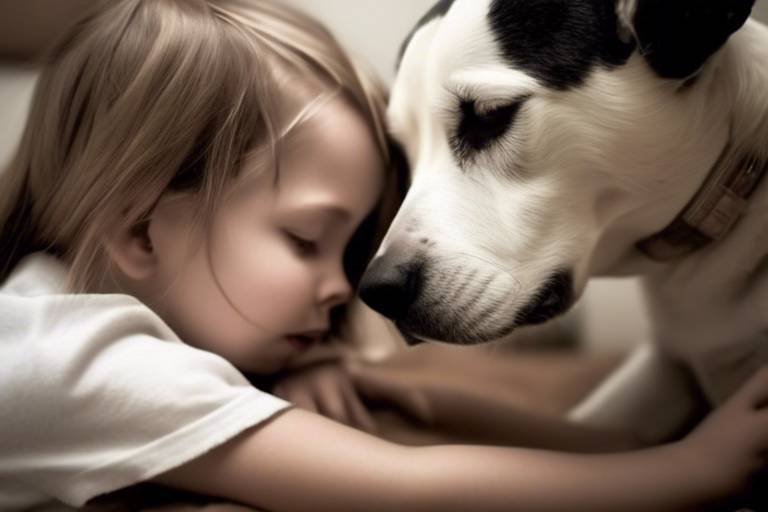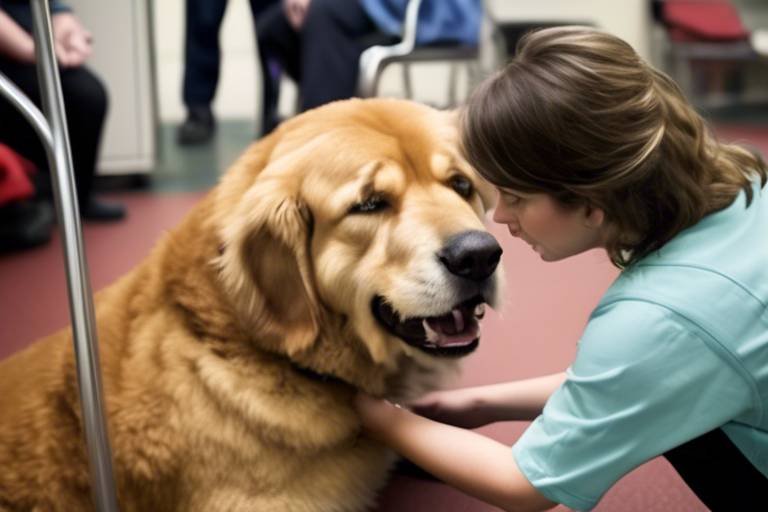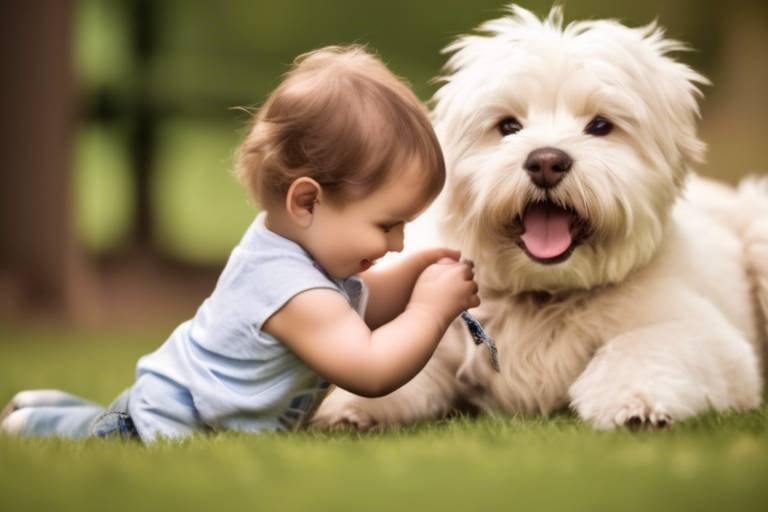The Importance of Long-Term Commitment in Pet Adoption
Adopting a pet is not just a decision; it's a promise—a promise to provide a loving and stable home for an animal in need. When you decide to welcome a furry friend into your life, you are embarking on a journey that requires dedication, responsibility, and love. This commitment extends far beyond the initial excitement of bringing a new pet home. It involves understanding the long-term needs of your pet, ensuring their well-being, and fostering a bond that can last a lifetime.
Many people might feel overwhelmed by the thought of long-term commitment, but think of it this way: adopting a pet is like planting a tree. You nurture it, watch it grow, and in return, it provides shade, beauty, and companionship throughout the years. Just as trees require care, attention, and patience, so do our beloved pets. They rely on us for their health, happiness, and overall quality of life.
Before you adopt, it's essential to consider what it truly means to be a pet owner. From regular veterinary visits to daily feeding and exercise, the responsibilities are numerous. A pet is not just a temporary guest; they are a family member who will rely on you for everything they need. This long-term commitment is what makes pet adoption such a significant and rewarding experience.
Moreover, the emotional rewards of having a pet are immeasurable. The bond you develop with your furry companion can bring immense joy and fulfillment. They become your confidants, your playmates, and your sources of unconditional love. Think about how they greet you at the door after a long day, tail wagging with excitement—it's a reminder that your commitment truly matters.
In conclusion, the importance of long-term commitment in pet adoption cannot be overstated. It’s about creating a safe, loving environment for your pet and understanding that your relationship with them is a lifelong journey filled with ups and downs. So, before you take that leap, ask yourself: Are you ready to make this commitment? If the answer is yes, then you are on the path to experiencing the incredible joy that comes with being a pet parent.
- What should I consider before adopting a pet?
Before adopting, consider your lifestyle, the time you can dedicate to a pet, and the financial implications of pet care.
- How long is the commitment when adopting a pet?
The commitment can last for the entire lifespan of the pet, which may range from 10 to 20 years depending on the species and breed.
- What are the main responsibilities of pet ownership?
Main responsibilities include providing food, regular veterinary care, training, socialization, and exercise.
- How can I prepare for unexpected expenses related to pet ownership?
It's wise to set aside an emergency fund specifically for your pet's healthcare needs and other unforeseen costs.

The Responsibilities of Pet Ownership
Owning a pet is not just about enjoying their cute antics or snuggling with them on the couch; it’s a profound commitment that requires a deep understanding of the responsibilities involved. When you decide to adopt a furry friend, you’re essentially signing up for a long-term relationship that can last anywhere from a few years to over a decade, depending on the type of pet. This commitment encompasses various aspects, including regular veterinary care, proper nutrition, training, and emotional support. Each of these elements plays a crucial role in ensuring that your pet thrives in their new home.
First and foremost, veterinary care is essential. Regular check-ups, vaccinations, and preventive treatments are necessary to keep your pet healthy. Just like humans, pets can suffer from a range of health issues, and being proactive can help catch potential problems before they escalate. For instance, did you know that dental health is often overlooked in pets? Neglecting this can lead to serious health complications. Therefore, it’s important to schedule annual visits to the vet and stay updated on their health needs.
Feeding your pet the right diet is another vital responsibility. Pets require balanced nutrition tailored to their specific needs, which can vary by age, size, and breed. It’s not just about filling their bowl with food; it’s about understanding what fuels their bodies and keeps them active and healthy. This means investing time in researching the best food options and being mindful of portion sizes. You wouldn't want to overfeed or underfeed your beloved companion, right?
Training is also a significant part of pet ownership. It’s not just about teaching them to sit or stay; it’s about building a foundation for a harmonious relationship. A well-trained pet is a joy to have around and can adapt better to various situations. Training requires patience and consistency, and it’s a responsibility that falls squarely on your shoulders as their owner. Remember, pets are like children; they thrive on routine and positive reinforcement.
Moreover, providing emotional support is a cornerstone of pet ownership. Animals are incredibly perceptive and can sense our moods. They often offer companionship that can lift our spirits on tough days. However, this emotional bond is a two-way street. You must also be present for them, offering love, attention, and a safe environment. This commitment to nurturing their emotional needs is what transforms a house into a home.
Lastly, it’s essential to recognize that pets are not just temporary companions; they are family members that depend on you. The responsibilities of pet ownership are not to be taken lightly, and prospective adopters should carefully consider whether they can meet these obligations. Adopting a pet is a promise to provide a loving home for their entire life, and this realization can make the difference between a successful adoption and a heartbreaking situation.
In summary, the responsibilities of pet ownership are multifaceted and require a long-term commitment. From veterinary care and proper nutrition to training and emotional support, each aspect is crucial in ensuring a happy and healthy life for your pet. So, before you bring a furry friend into your home, ask yourself: are you ready for the joy and responsibility that comes with it?
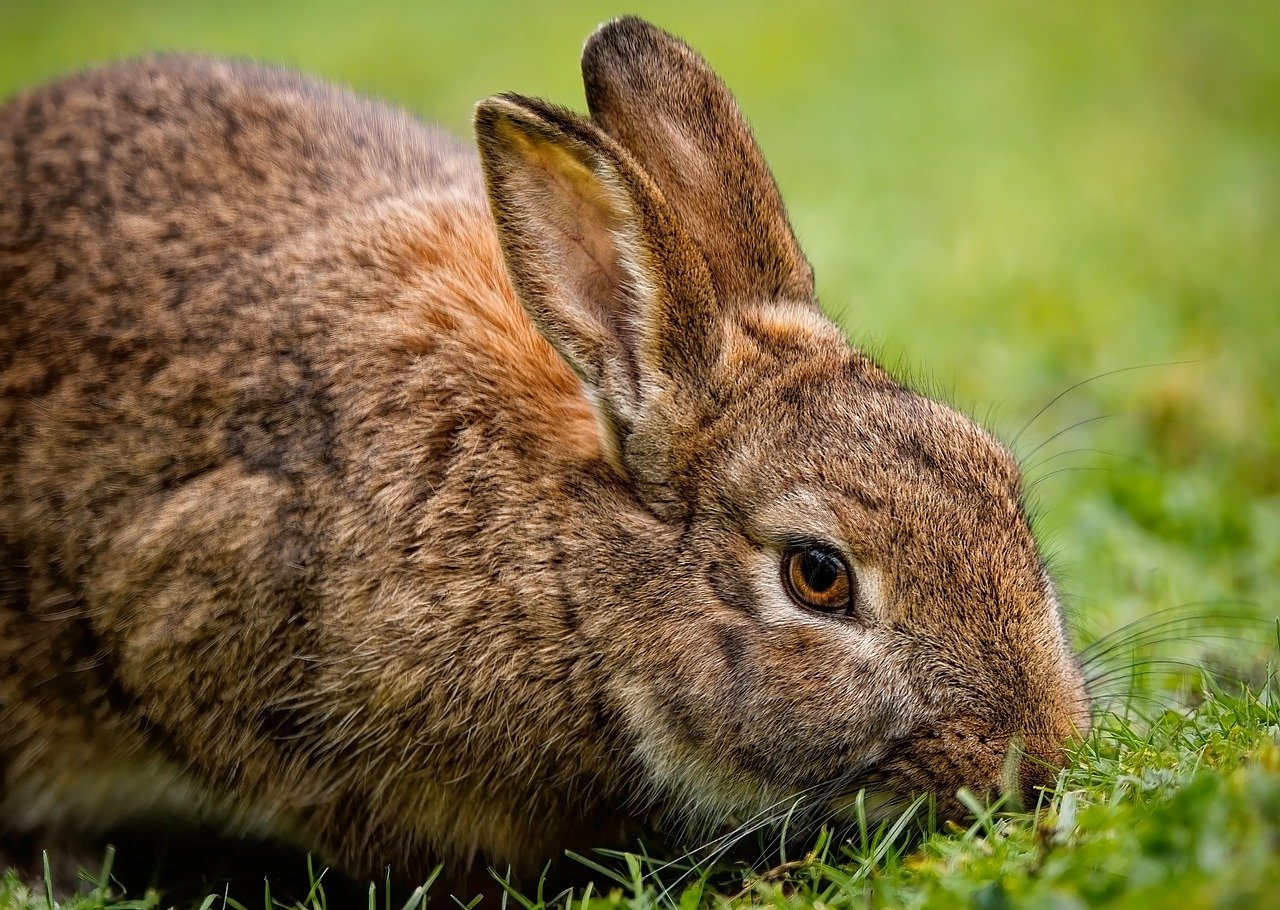
Adopting a pet is not just about bringing home a furry friend; it’s about enriching your life in countless ways. The moment you open your heart and home to an animal in need, you embark on a journey filled with joy, companionship, and profound emotional support. But what exactly are the benefits of adopting a pet? Let’s dive deeper into the myriad of advantages that come with this long-term commitment.
First and foremost, pets provide unconditional companionship. Imagine coming home after a long day, feeling the weight of the world on your shoulders. Your dog greets you with wagging tails and excited barks, reminding you that you are loved and appreciated. This companionship can significantly reduce feelings of loneliness and isolation, making life’s challenges feel a little less daunting. In fact, studies have shown that pet owners often report feeling less lonely than those without pets. Isn’t that a heartwarming thought?
Furthermore, pets can be a source of emotional support. They have an incredible ability to sense our feelings, often curling up next to us when we’re feeling down or anxious. This connection can be incredibly therapeutic. For many, the simple act of petting a cat or dog can trigger the release of oxytocin, the “love hormone,” which helps to alleviate stress and promote feelings of happiness. In essence, pets are like little furry therapists that never judge and always listen.
Moreover, adopting a pet can lead to improved mental health. Research indicates that pet ownership is linked to lower levels of depression and anxiety. The routine of caring for a pet—feeding, walking, and playing—provides structure and purpose, which can be particularly beneficial for individuals struggling with mental health issues. Engaging with pets can also encourage physical activity, which is another key component of mental well-being. A brisk walk with your dog can do wonders for your mood, much like a breath of fresh air after being cooped up indoors.
Let’s not forget the social benefits that come with pet ownership. Pets can be excellent conversation starters, often leading to new friendships and connections with other pet owners. Whether it’s at the dog park or a local pet store, sharing stories and experiences about our furry companions can foster a sense of community. Plus, pets have a magical way of breaking the ice—who can resist a cute puppy or a fluffy kitten? They can turn strangers into friends in an instant!
Lastly, adopting a pet can instill a sense of responsibility and purpose. Caring for another living being requires commitment, and this can lead to personal growth and development. It teaches us empathy, patience, and the importance of nurturing relationships. For families, having a pet can also provide children with valuable lessons about responsibility and compassion, shaping them into caring adults.
In conclusion, the benefits of adopting a pet extend far beyond mere companionship. From enhancing mental health to providing emotional support and fostering social connections, pets enrich our lives in profound ways. They teach us about love, loyalty, and the beauty of unconditional relationships. So, if you’re considering bringing a pet into your life, remember that you’re not just saving an animal in need; you’re also opening the door to a world filled with joy, love, and countless benefits.
- What are the initial costs of adopting a pet? Initial costs can include adoption fees, vaccinations, spaying/neutering, and supplies such as food bowls, leashes, and bedding.
- How can I prepare my home for a new pet? Make sure to pet-proof your space by removing hazards, securing loose wires, and creating a comfortable area for your new friend.
- What if I have allergies? Some pets, like certain dog breeds and cats, are hypoallergenic. It's best to do some research or consult with a vet to find the right fit for you.
- How much time should I dedicate to a pet daily? Dogs typically require more time for exercise and companionship, while cats may need less. On average, you should plan to invest at least an hour a day in quality time with your pet.
When you bring a pet into your life, you're not just adding a furry friend; you're opening the door to a world filled with emotional connections that can profoundly change your life. Think about it: have you ever felt a rush of joy just by seeing your dog wag its tail or your cat purring contentedly in your lap? These moments are not just fleeting; they are the building blocks of a deep emotional bond that develops over time. This connection is what makes pet ownership so incredibly rewarding.
Pets have an uncanny ability to sense our emotions. They can pick up on our moods, offering comfort when we’re feeling down and celebrating with us during our happiest moments. This mutual understanding creates a unique dynamic that fosters trust and companionship. It's like having a best friend who is always there for you, no matter what. Imagine coming home after a long day—your pet is there, tail wagging or purring softly, ready to welcome you with unconditional love. This simple act can turn your day around and remind you that you are never alone.
Over time, these bonds can lead to some incredible experiences and memories. Whether it's teaching your dog a new trick, watching your cat chase a laser pointer, or simply snuggling on the couch, each moment adds another layer to your relationship. As you nurture this bond, you create a shared history filled with joy, laughter, and sometimes even a few tears. Here are a few ways in which emotional bonds with pets manifest:
- Shared Experiences: Going for walks, playing fetch, or just lounging together creates a tapestry of memories that enrich your life.
- Comfort in Tough Times: Pets have a remarkable ability to provide comfort during difficult times, acting as a source of emotional support.
- Non-Judgmental Companionship: Unlike humans, pets don't judge; they love you for who you are, flaws and all.
This emotional bond is not just beneficial for pet owners but also for the pets themselves. Animals thrive on affection and attention, and the love you give them fosters a sense of security and belonging. It’s a two-way street: as you invest time and love into your pet, they reciprocate with loyalty and affection, creating a beautiful cycle of love. This connection often leads to improved mental health for both parties. Studies have shown that people with pets often experience lower levels of stress and anxiety, and this is largely due to the emotional comfort pets provide.
Ultimately, the emotional bonds we form with our pets are some of the most rewarding aspects of pet ownership. They teach us about love, responsibility, and the importance of being present in the moment. So, as you consider adopting a pet, remember that you are not just gaining a companion; you are entering into a relationship that can bring immense joy and fulfillment to your life.
- How can I strengthen my bond with my pet? Spend quality time together, engage in play, and provide consistent training and affection.
- What are the signs that my pet is emotionally attached to me? Look for behaviors like following you around, seeking your attention, and displaying excitement when you return home.
- Can pets help with emotional well-being? Yes! Pets provide companionship and can help reduce feelings of loneliness and anxiety.
When we think about the bond between humans and pets, love and loyalty often come to the forefront. These two qualities are not just traits; they are the very essence of what makes pet ownership so rewarding. Imagine coming home after a long day, and the moment you open the door, your furry friend greets you with wagging tails or gentle purrs. This warm reception is a daily reminder of the unconditional love that pets offer. It’s as if they have an innate ability to sense our moods and respond accordingly, providing comfort when we need it most.
The loyalty of pets goes beyond just being there in good times; it’s about their unwavering presence through thick and thin. Dogs, for instance, are known for their loyalty and protective instincts. They stand by their owners, offering companionship that can make even the darkest days a bit brighter. This loyalty creates a sense of security and belonging, making us feel valued and loved. It’s no wonder that many pet owners describe their pets as family members rather than mere companions.
But what exactly fosters this deep-rooted love and loyalty? It starts with the bond we build through daily interactions. Simple acts like feeding, playing, and cuddling help to strengthen this connection. Over time, these shared experiences create a tapestry of memories that enrich our lives. For example, taking your dog for a walk not only fulfills their exercise needs but also provides an opportunity to bond and explore the world together. Each adventure, whether big or small, adds to the story of your relationship.
Moreover, pets have an incredible way of teaching us about love. They remind us to be present, to live in the moment, and to appreciate the little things in life. When we see our pets express joy over something as simple as a treat or a new toy, we are reminded of the beauty of simplicity. This perspective shift can enhance our overall happiness and emotional well-being.
In essence, the love and loyalty of pets create a unique and fulfilling relationship that is hard to replicate. They become our confidants, our playmates, and our sources of comfort. This bond not only enriches our lives but also encourages us to be better individuals. After all, who wouldn’t want to emulate the unwavering loyalty and unconditional love that our pets so freely give?
- Why are pets so loyal? Pets are loyal because they thrive on routine, companionship, and the bond they form with their owners. Their loyalty is often a reflection of the love and care they receive.
- How can I strengthen my bond with my pet? Spend quality time with your pet through play, training, and affection. Consistency in care and attention fosters a deeper connection.
- Do pets feel love like humans do? While pets may not experience love in the same way humans do, they certainly form strong emotional attachments and express affection in their unique ways.
When we talk about the impact of pets on mental health, it’s hard to overlook the profound effects they have on our emotional well-being. Numerous studies have shown that having a furry friend by your side can significantly reduce feelings of stress and anxiety. Imagine coming home after a long, exhausting day; the moment you walk through the door, your dog greets you with wagging tails and wet kisses. It’s like a warm hug that melts away the day’s worries. This simple yet powerful interaction can trigger the release of oxytocin, the love hormone, which enhances feelings of happiness and connection.
Moreover, pets provide a sense of purpose and routine. When you adopt a pet, you take on the responsibility of caring for another living being. This responsibility can help you structure your day and create a sense of normalcy, especially in chaotic times. For example, regular feeding, walks, and playtime can serve as a grounding routine that keeps you anchored. It’s like having your own little cheerleader, reminding you to get up, move around, and engage with the world outside.
Not only do pets help alleviate loneliness, but they also encourage social interactions. Whether it’s meeting fellow dog owners at the park or bonding with friends over shared pet experiences, pets can be great conversation starters. They create opportunities for connection that might not happen otherwise. In fact, many people find that their pets help them open up and share their feelings more freely, fostering deeper relationships with others.
To illustrate the positive effects of pets on mental health, here’s a quick overview:
| Benefit | Description |
|---|---|
| Stress Reduction | Petting a dog or cat can lower cortisol levels, which are linked to stress. |
| Increased Happiness | Interactions with pets release endorphins, boosting overall mood. |
| Enhanced Social Interaction | Pets can facilitate new friendships and strengthen existing ones. |
| Routine and Structure | Caring for a pet creates daily routines that can help manage anxiety. |
In conclusion, the emotional benefits of having a pet are undeniable. They not only provide companionship but also play a crucial role in enhancing our mental health. The joy that comes from nurturing these relationships over time can lead to a happier, more fulfilled life. So, if you’re considering adopting a pet, remember that you’re not just giving an animal a home; you’re also inviting a source of joy and emotional support into your life.
- How do pets help reduce anxiety? Pets provide companionship and a sense of stability, which can help alleviate feelings of anxiety.
- Can pets improve my mood? Yes! Interacting with pets can release endorphins, leading to improved mood and happiness.
- What types of pets are best for mental health? Dogs and cats are commonly known for their emotional support, but even small pets like rabbits or guinea pigs can provide companionship.
- How can I prepare for the mental commitment of pet ownership? Research the type of pet you want, understand their needs, and ensure you’re ready for the emotional investment.
Caring for aging pets is a journey filled with love, patience, and a bit of extra understanding. As our furry friends mature, their needs change significantly, and it becomes our responsibility as their guardians to adapt to these changes. Just like humans, pets can face various health issues as they age, such as arthritis, dental problems, and even cognitive decline. Recognizing these signs early and adjusting our care strategies accordingly can make a world of difference in their quality of life.
One of the first steps in caring for an aging pet is ensuring they receive regular veterinary check-ups. These visits are crucial, as they allow for early detection of potential health issues. Your vet can recommend specific diets, supplements, or medications that cater to your pet's unique needs. For instance, senior pets may require special food formulations that are easier to digest and packed with nutrients tailored for their age group.
Additionally, creating a comfortable living environment for your aging pet is essential. This might mean providing softer bedding, minimizing stairs, and ensuring easy access to food and water. Many older pets benefit from having their essentials within reach, reducing the strain on their joints and muscles. You might also consider using ramps or pet stairs for easier access to favorite spots, like the couch or bed.
Another important aspect of caring for aging pets is maintaining a consistent routine. Pets thrive on predictability, and as they age, they may become more anxious or disoriented. Keeping feeding times, walks, and playtime consistent can help them feel secure. Moreover, incorporating gentle exercises tailored to their ability can keep them active and engaged. Short, leisurely walks or interactive play sessions can be beneficial for their physical and mental health.
Lastly, emotional support is just as vital as physical care. Spend quality time with your aging pet, offering affection and companionship. They may not be as spry as they once were, but your presence can provide immense comfort. Remember, the bond you share is a treasure that only deepens with time. Cherish those moments, as they are just as significant for you as they are for your beloved pet.
- What signs indicate that my pet is aging? Look for changes in behavior, mobility issues, decreased energy levels, and changes in eating or drinking habits.
- How often should I take my aging pet to the vet? It’s recommended to schedule check-ups at least twice a year for senior pets to monitor their health closely.
- Are there specific diets for aging pets? Yes, many brands offer senior pet food that is easier to digest and includes nutrients that support aging joints and overall health.
- How can I help my aging pet stay active? Engage them in gentle exercises like short walks or interactive play that accommodate their physical capabilities.
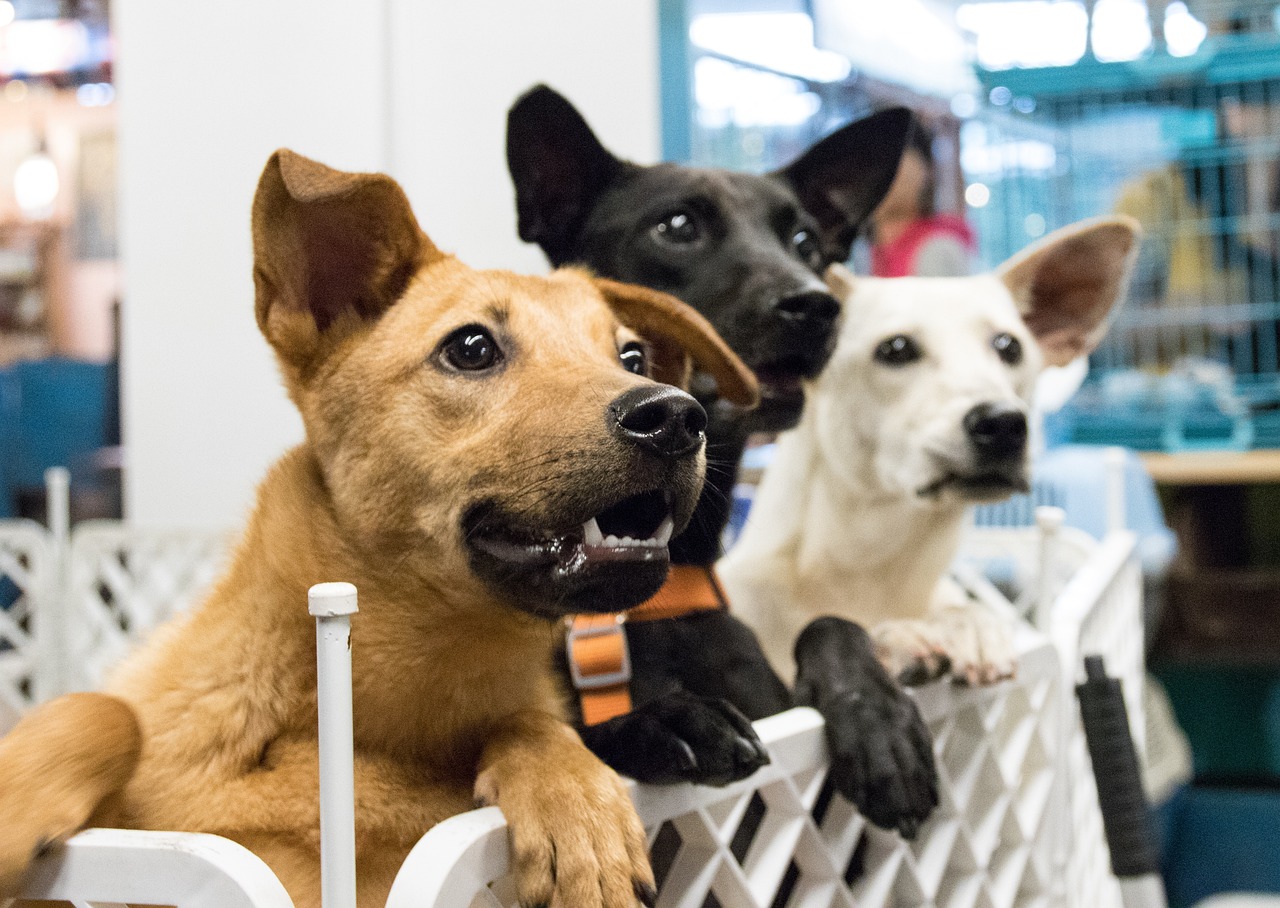
Adopting a pet is not just about bringing home a furry friend; it's a long-term financial commitment that requires careful consideration and planning. When you decide to welcome a pet into your life, you're also taking on the responsibility of ensuring their health and happiness, which can come with a significant price tag. From food and grooming to veterinary care and supplies, the costs can add up quickly, and it's essential to be prepared.
To give you a clearer picture, let's break down some of the typical expenses you might encounter as a pet owner. While the initial adoption fee is often just a fraction of the overall costs, it's crucial to understand that this is just the beginning of your financial journey. For instance, consider the following expenses:
| Expense Category | Estimated Annual Cost |
|---|---|
| Food | $250 - $700 |
| Routine Veterinary Care | $200 - $500 |
| Grooming | $30 - $500 |
| Supplies (toys, beds, etc.) | $100 - $300 |
| Pet Insurance | $300 - $600 |
As you can see, the costs can vary widely depending on the type of pet you adopt, their size, and their specific needs. For example, larger dogs typically eat more food and may require more frequent grooming than smaller breeds. Additionally, some pets may have pre-existing conditions that necessitate ongoing treatment, which can further increase your expenses.
It's also essential to consider unexpected expenses that can arise during pet ownership. Pets can be unpredictable, and emergencies can happen at any time. For instance, an unexpected trip to the vet for an injury or illness can easily cost hundreds or even thousands of dollars. Therefore, it's wise to set aside an emergency fund specifically for these situations to ensure your pet receives the care they need without causing financial strain.
In light of these factors, budgeting becomes a vital aspect of responsible pet ownership. Here are some tips to help you effectively manage your finances related to pet care:
- Research Costs: Before adopting, research the average costs associated with the specific breed or type of pet you’re interested in.
- Create a Monthly Budget: Factor in all recurring costs, including food, vet visits, and grooming.
- Set Up an Emergency Fund: Aim to save a few hundred dollars for unexpected vet bills or emergencies.
By being proactive and planning your finances, you can ensure that you provide a stable and loving home for your new pet. Remember, adopting a pet is a commitment that goes beyond just love and affection; it requires a thoughtful approach to ensure their well-being for years to come.
Q: What are the initial costs of adopting a pet?
A: Initial costs can include adoption fees, vaccinations, spaying/neutering, and initial supplies like food and bedding. These can range from a few hundred to over a thousand dollars depending on the pet's needs.
Q: How can I prepare for unexpected pet expenses?
A: Setting aside an emergency fund specifically for pet care can help. Additionally, consider pet insurance to cover unexpected health issues.
Q: Is it expensive to care for a pet long-term?
A: Yes, the long-term costs can be significant, including food, veterinary care, grooming, and supplies. Proper budgeting and planning are essential to manage these expenses.
When it comes to pet ownership, budgeting is your best friend. Just like you wouldn’t embark on a road trip without knowing how much gas you’ll need, adopting a pet requires a clear understanding of the financial commitment involved. The costs can add up quickly, and being unprepared can lead to stress and heartache, both for you and your furry friend. So, let’s break down the essential expenses you’ll need to consider when budgeting for your new companion.
First and foremost, think about the basic necessities. These include food, which varies depending on the size and dietary needs of your pet, as well as regular veterinary care. Routine check-ups, vaccinations, and preventive medications are crucial for keeping your pet healthy. On average, you might spend anywhere from $300 to $700 annually on these essentials, but this can vary significantly based on the type of pet and its specific needs.
Next, consider the costs associated with supplies. This encompasses everything from food bowls and leashes to toys and grooming tools. It’s easy to overlook these initial expenses, but they can quickly pile up. For example, you might budget around $150 to $300 for supplies in the first year alone. And let’s not forget about training classes, which can range from $100 to $500 depending on the type of training and the facility.
Another important aspect of your budget should be the unexpected expenses. Pets, like humans, can get sick or injured, and veterinary emergencies can be costly. It’s wise to set aside a portion of your budget for these unforeseen circumstances. Many pet owners find it helpful to establish a separate savings account for emergencies, aiming to save at least $500 to $1,000 for unexpected vet bills. This way, you can ensure that your pet receives the care they need without financial strain.
To help you visualize your budgeting, here’s a simple table that outlines typical annual expenses:
| Expense Category | Estimated Annual Cost |
|---|---|
| Food | $300 - $700 |
| Routine Veterinary Care | $200 - $500 |
| Supplies (toys, bowls, etc.) | $150 - $300 |
| Training Classes | $100 - $500 |
| Emergency Fund | $500 - $1,000 |
In conclusion, budgeting for pet care is not just about crunching numbers; it’s about ensuring a happy and healthy life for your beloved companion. By planning ahead and being mindful of the various expenses, you can create a stable environment where both you and your pet can thrive. Remember, adopting a pet is a long-term commitment, and being financially prepared is a crucial part of that journey.
- How much should I budget for my pet's food? The cost can vary widely depending on the type of pet and its dietary needs, but a good estimate is between $300 to $700 annually.
- What are some unexpected costs I should prepare for? Unexpected costs can include emergency vet visits, which can range from $100 to several thousand dollars depending on the situation.
- Is it necessary to have an emergency fund for my pet? Yes, having an emergency fund of at least $500 to $1,000 can help ensure your pet receives necessary care without financial strain.
When you decide to adopt a pet, it's easy to get swept up in the excitement of bringing a new furry friend into your home. However, amidst all the joy, it's crucial to acknowledge that pet ownership can come with a host of unexpected expenses that can catch even the most prepared pet parent off guard. Just like owning a car or a home, having a pet requires a financial commitment that goes beyond the initial adoption fee.
For instance, while you might budget for food and regular veterinary check-ups, unforeseen situations can arise that require immediate attention. Imagine your playful puppy suddenly limping after a day of romping around the park. You might find yourself rushing to the vet, not only worried about your pet's health but also about the potential costs involved. Emergency vet visits can be particularly daunting, often costing hundreds to thousands of dollars depending on the situation.
Here are some common unexpected expenses that pet owners should be prepared for:
- Emergency Veterinary Care: Accidents happen, and pets can get into trouble. Whether it's a sudden illness or an injury, emergency care can be costly.
- Specialized Treatments: Some pets may require specialized treatments for chronic conditions or sudden health issues, which can add up quickly.
- Behavioral Training: If your new pet has behavioral issues, you might need to invest in training sessions to help them adjust to their new home.
- Pet Insurance: While not a direct expense, many owners opt for pet insurance to help mitigate costs from unexpected health issues. However, premiums can vary greatly.
Moreover, as your pet ages, their healthcare needs will evolve. Older pets often require more frequent vet visits, special diets, and medications, which can lead to a significant increase in annual expenses. It's wise to plan ahead and set aside an emergency fund specifically for your pet's health needs. Think of it as a safety net that ensures your beloved companion receives the care they deserve without putting a strain on your finances.
In conclusion, while the joy of pet ownership is immense, it's essential to approach it with a realistic mindset regarding potential costs. By preparing for these unexpected expenses, you can ensure a stable and loving environment for your pet, allowing both of you to thrive together.
Q: What should I do if I can't afford an emergency vet visit?
A: If you find yourself in a situation where you can't afford an emergency vet visit, consider reaching out to local animal welfare organizations or shelters. They might offer assistance or be able to direct you to low-cost veterinary services.
Q: Is pet insurance worth it?
A: Pet insurance can be beneficial for many pet owners, as it helps cover unexpected medical expenses. However, it's essential to read the policy carefully and understand what is covered and what isn't. Evaluate your pet's health history and your financial situation to determine if it's a good fit for you.
Q: How can I prepare for my pet's future medical expenses?
A: Start by creating a budget that includes regular veterinary care, food, and supplies. Additionally, set aside a small amount each month in a savings account dedicated to your pet's healthcare needs. This way, you'll be better prepared for any surprises that may come your way.
Frequently Asked Questions
- What are the main responsibilities of pet ownership?
Owning a pet is a big commitment! It involves regular veterinary visits, feeding, grooming, and training. You need to ensure your furry friend gets the attention and care they deserve, just like you would for a family member. Think of it as a lifelong promise to provide a loving and stable environment.
- What benefits can I expect from adopting a pet?
Adopting a pet can bring a world of joy! You'll gain a loyal companion who can boost your mood, reduce stress, and even improve your overall mental health. It's like having a furry therapist by your side, always ready to lend a listening ear or a comforting paw!
- How can I build a strong emotional bond with my pet?
Building a bond takes time and effort. Spend quality time together, play, and train your pet. The more you engage with them, the stronger your connection will become. It’s like nurturing a friendship; the more you invest in it, the more rewarding it becomes!
- What should I consider when caring for aging pets?
Aging pets require special attention. Their health needs may change, so be prepared for potential dietary adjustments and more frequent vet visits. It's essential to keep them comfortable and happy in their golden years, much like how we care for our aging family members.
- How much should I budget for pet care?
Budgeting for pet care is crucial! Make sure to account for food, vet visits, grooming, and supplies. A good rule of thumb is to set aside a specific amount each month to cover these costs, ensuring you’re always prepared for your pet's needs.
- What are some unexpected expenses I should be aware of?
Pet ownership can surprise you with unexpected costs, like emergency vet visits or unplanned supplies. It's wise to have an emergency fund set aside for these situations, so your pet can get the care they need without causing you financial stress.







